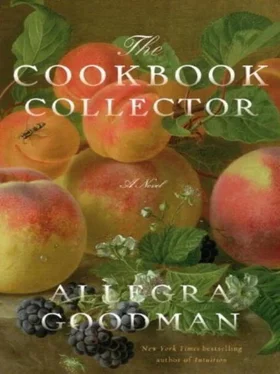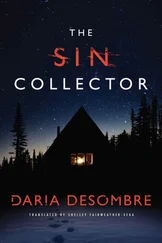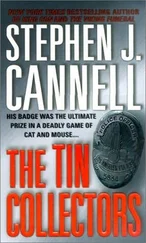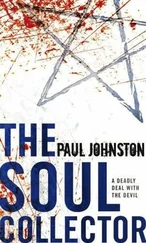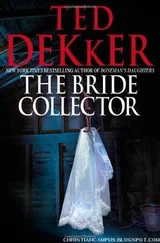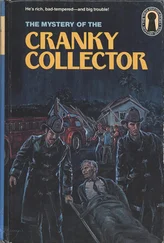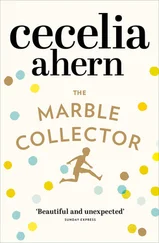“What’s this?”
The book was stuffed with folded notebook paper, even index cards, the precious volume interleaved with notes. George looked up at Sandra in alarm. “These aren’t acid-free. You see this?” He held up a note card covered with black writing. “The acid in this card will eat your book alive. This has to go.”
Notes and even newspaper clippings. The nineteenth-century volume was stuffed with what looked like shopping lists and pages torn from address books, thin typing paper brittle with age. Black ink leached onto the title page.
“You don’t keep folios like this,” he told Sandra. “Not in ovens! Look at this.” The collector’s block printing stained recipes for aspic, and smudged an engraved illustration of eight desserts, including pralinées aux fruit and abricots à la Portugaise . What had the man been thinking? Notes in permanent black ink pressed between these pages? He pulled out a folded article from The New York Times . An obituary for Samuel Chamberlain.
“He asked me to keep everything,” Sandra said.
George wasn’t listening. “Do you see this? A paper clip!” The silver wire clipped several scraps of paper to a recipe for petites meringues à l’ananas . George pulled it off, and showed Sandra the rusty impression left behind. “This is criminal.”
The paper clip upset him most of all. And there were others. A rare cookbook with lavish illustrations required lavish care. What George saw here were pages stained and crimped. “Have you opened these?” George demanded.
She shook her head.
“Have you seen their condition?”
“I try not to … I don’t want to crack the bindings,” she said.
He did not believe her. Who could resist cracking books like these? He wanted to open them right now, one after another on the kitchen table. He wanted to shuck these books like oysters in their shells.
“He asked me to keep the collection together,” she said.
George caressed a quarto bound in brown leather, hooped at the spine, secured with a gold clasp curiously wrought with scalloped, spiraling designs, engraved initials CWM , and the date 1735. Inside the book a title page printed in prickly gothic letters: Das Brandenburgiche Koch-Buch . Oh, glorious. The frontispiece depicted men and maidservants dressing fowl, and roasting meat over a roaring fire. Through a stone archway the lady of the house watched over all, raising her right index finger to instruct the staff. She held a great key in her other hand. The key to the house? To the spices? To cookery itself? In a reverie, George turned the page—and discovered folded typing paper.
He exploded. “You cannot stuff a book like this. Do you understand?”
“These are my uncle’s notes.”
“He was not a scholar,” George said, for he could not imagine a scholar imposing his notes on books like these.
“Yes, he was. He was a lichenologist.” She watched as George unfolded the brittle piece of typing paper. “He was very well known—in his field,” she added anxiously. “His name was Tom McClintock. He held the Bancroft Chair in …”
But George was lost in the thicket of McClintock’s words—poetry cross-referenced with recipes: I prithee, let me bring thee where crabs grow (iii crabbes and oysters) / And I with my long nails will dig thee pignuts, / Show thee a jay’s nest and instruct thee how / To snare the nimble marmoset; / I’ll bring thee to clustering filberts (xiii iellyes, puddings, other made-Dishes) …
“He taught at Cal for almost forty years,” Sandra said.
George had found another paper, covered with hand-printed lines—part love poem, part recipe, part threat: … snare you, dress you, cut you with the bone still in. Mince you small with suit and marrow, take sweet Creame, yolkes of Eggs, a few Razins of the Sun … An ink drawing illustrated these lines. A nude woman lying on a tablecloth. She lay on her side, all line and tapered leg, head resting on her hand. The drawing was expressive, despite its small scale. The subtlest marks indicated the arch of her foot, her brow, her full breasts.
“What have we here?” George asked, even as Sandra snatched the paper from his hands and folded it again.
“My uncle was a very scholarly, modest …,” Sandra began.
“And what was he doing with these books?”
“I don’t know,” she whispered in reply.
And George wanted the collection then. He wanted it, notes and all, to read and puzzle over. He wanted days and weeks with these rare books and their strange apparatus, the notes and drawings of their collector. He would satisfy his curiosity. But first, “I’ll need to bring in an antiquarian. I have a friend—”
The front door rattled and Sandra jumped, hand on her heart.
“What was that?”
“Only the mailman,” she said. “He frightened me.”
George looked warily at her. She was far too nervous, far too gray—ashen-faced, really—wide-eyed, shaken.
“I’m afraid,” Sandra said.
Oh, God, thought George, but he asked, “What are you afraid of?”
She mulled the question. “I’m afraid in general.”
“Afraid of selling?”
“I need to sell, but I’m afraid of him.”
“Your uncle’s gone,” George reminded her.
“Yes, I know,” said Sandra, but her voice trembled. “He’s dead, and I’m going to betray him.”
Red-letter day! He had heard from other dealers about triumphs at swap meets, or, as his friend Raj dubbed such adventures, Victories at Flea. He had heard of Alcott family papers in a New England barn, and a hand-drawn map of Arabia by T. E. Lawrence tucked underneath the endpapers of Lawrence’s eighteenth-century Josephus. These were tales of the trade, but he had never contributed a legend of his own.
Sandra was a strange one. She had her apprehensions and her guilt, but George had never seen conscience-stricken sellers turn from good hard cash. He would make an offer to light up her gray eyes and make her feel almost young again. He felt euphoric. He would open his 1974 Martha’s Vineyard that night. Best of all his cabernets, the one he had been saving. He jingled his keys as he returned to Yorick’s. He could almost taste the deep red, lush Heitz.
He saw that his Post-it had disappeared. Turning the key, he found the glass door unlocked, and stepped inside to find Jess, reading at his desk. Her hair was falling in her eyes, and she wore a wrinkled linen dress too big for her; she wore all her clothes that way—loose, voluminous—and then while working, she would push up her sleeves, revealing her forearms.
“Long time, no see,” George sang out, taking his 1892 Leaves of Grass from Jess’s hands. “You found my note?”
“I did.” She snatched up the utility knife.
“You haven’t even opened the boxes.”
“I was just about to!”
“As soon as you finished ‘Song of Myself’? That’s all right, don’t bother.”
“Don’t bother? What do you mean?” She looked up at him as she often did, all innocence, bright-eyed, polite—until she could determine if he was really angry with her or only bluffing. “Why are you so happy?” She squinted, examining him closely, and then smiled, triumphant. “You bought something!”
He thought of telling her about the books. For just a moment he considered confiding in her, but he was superstitious until he closed a deal. “I didn’t buy anything.”
“Really?” She leaned back in his desk chair.
“Careful.”
She sat up straight, all business with four chair legs on the floor. “I’ll shelve the books. Just let me take care of it.”
“Jess,” he said, “you had all afternoon to take care of it. It’s four o’clock, I’m closing early, and now you’ve missed your chance.”
Читать дальше
